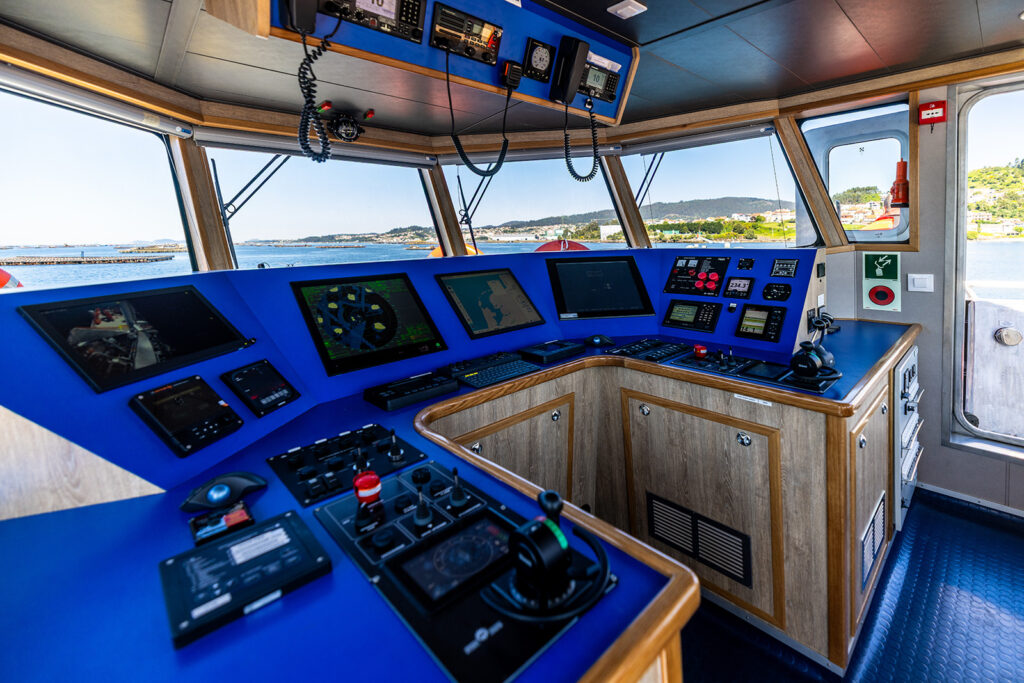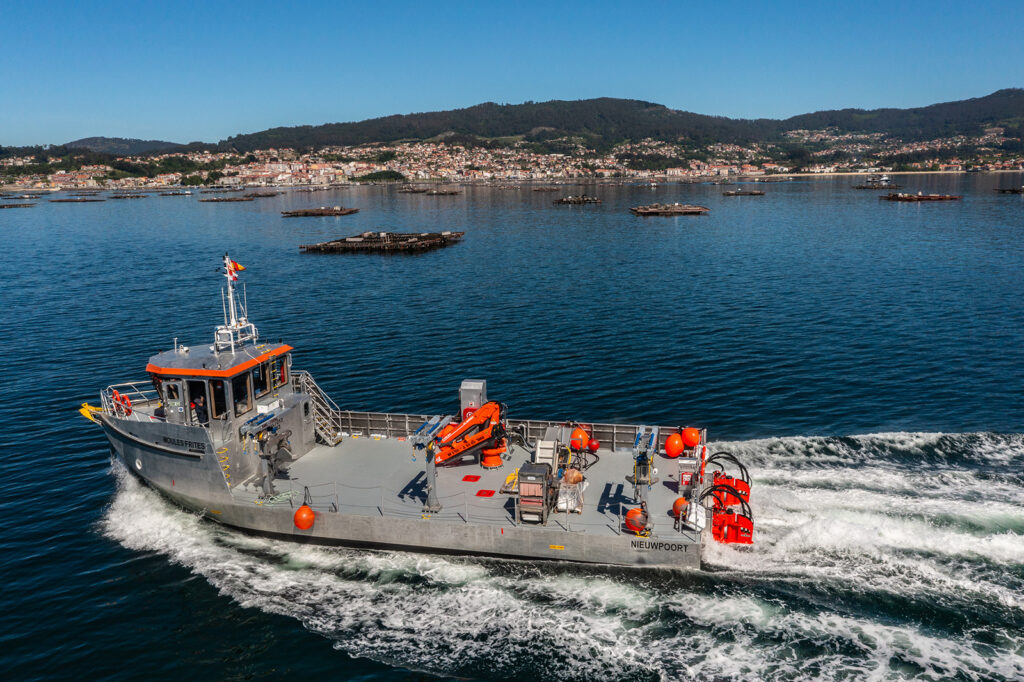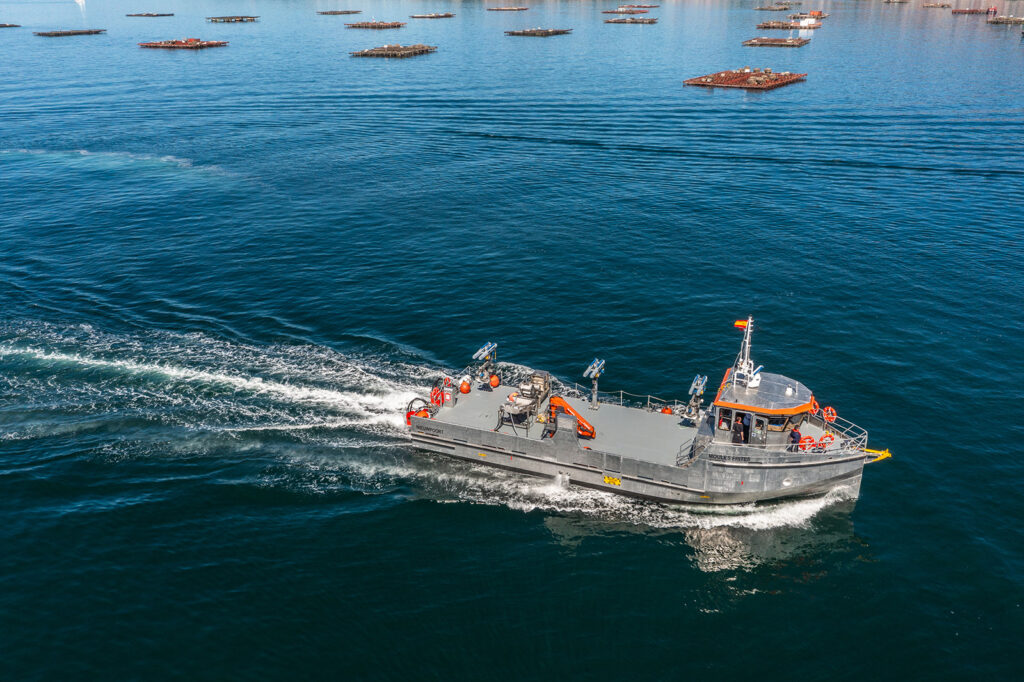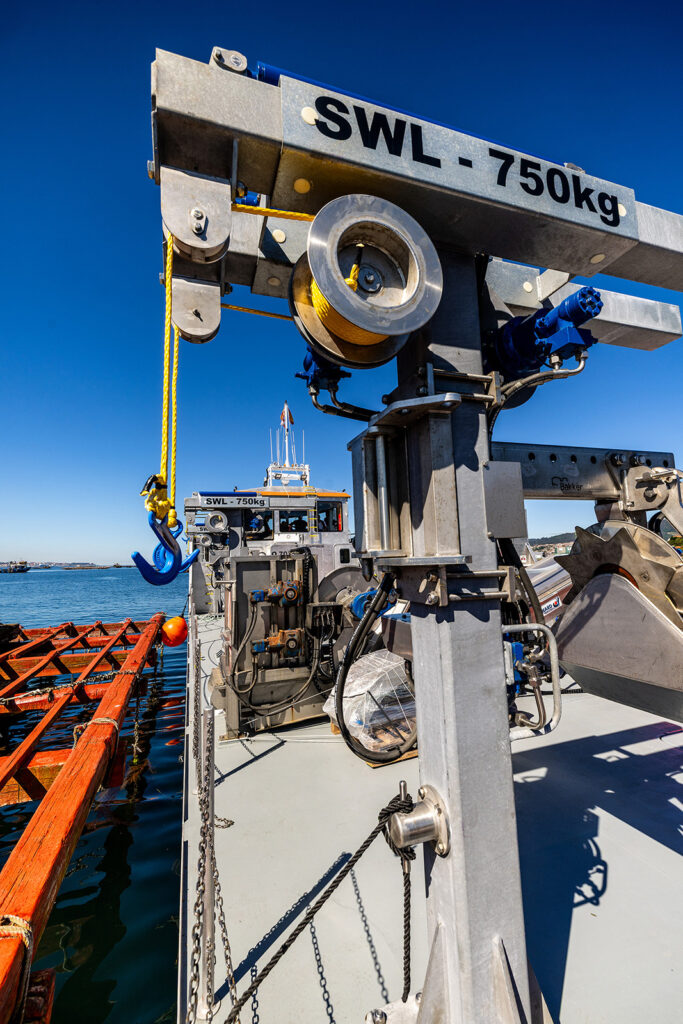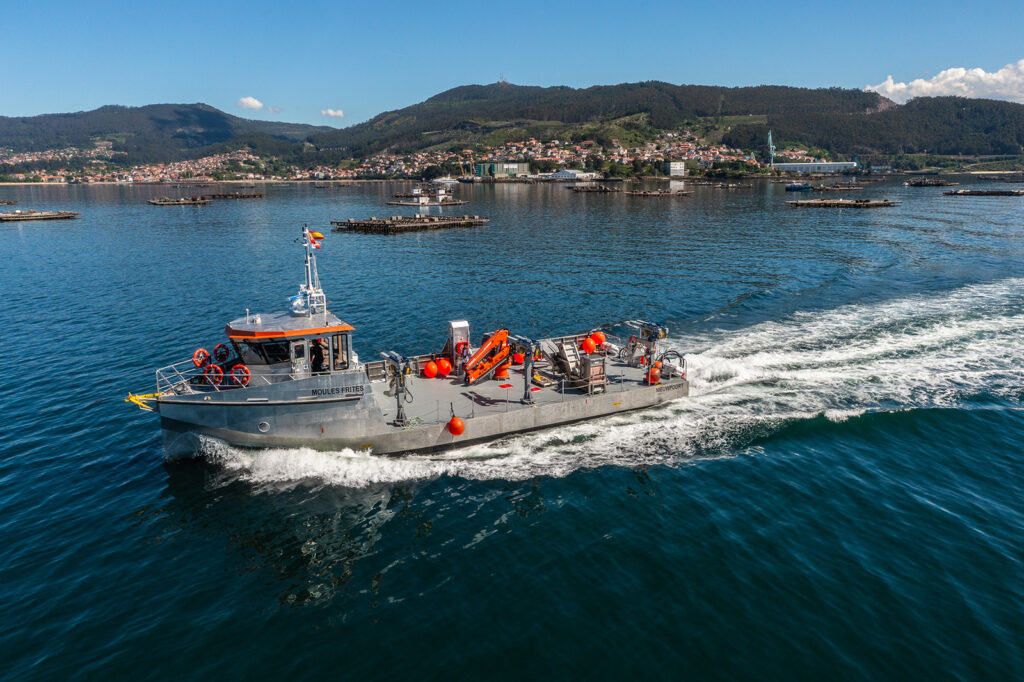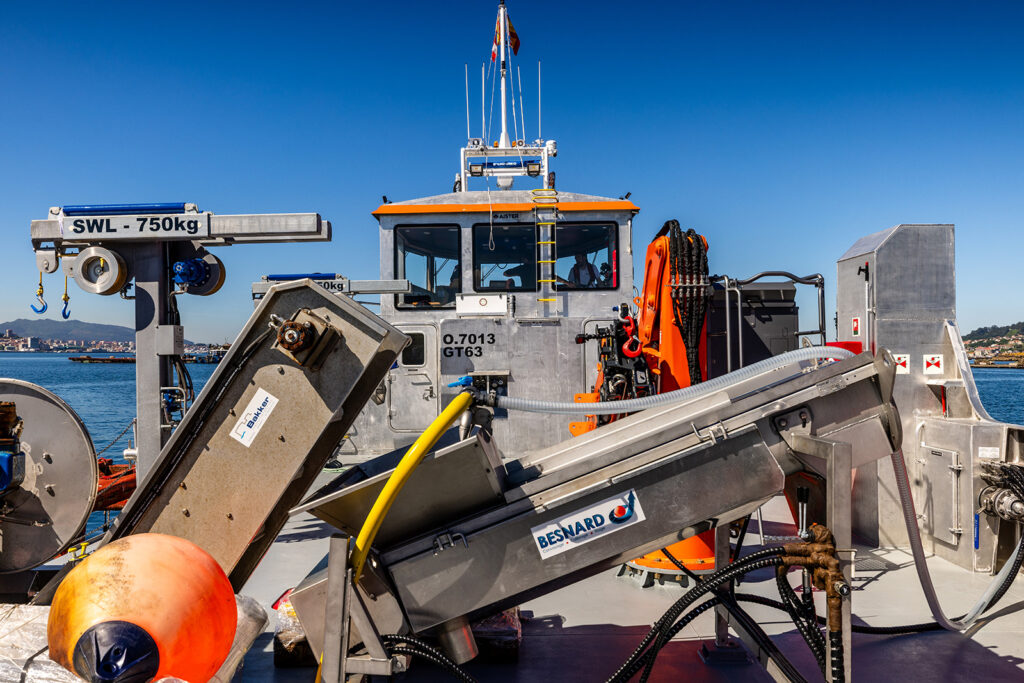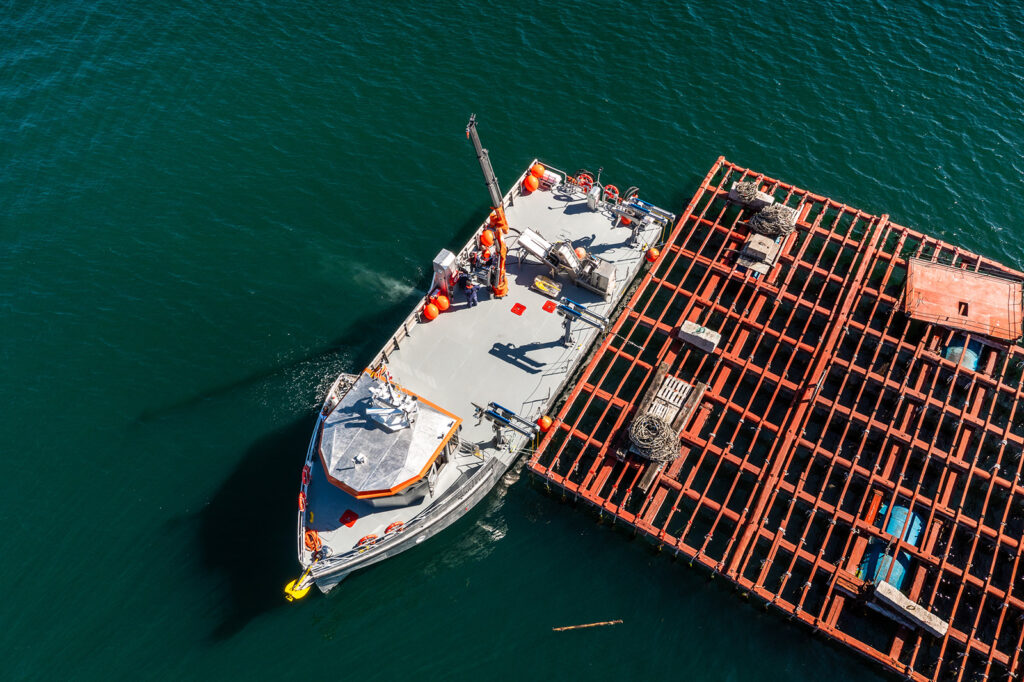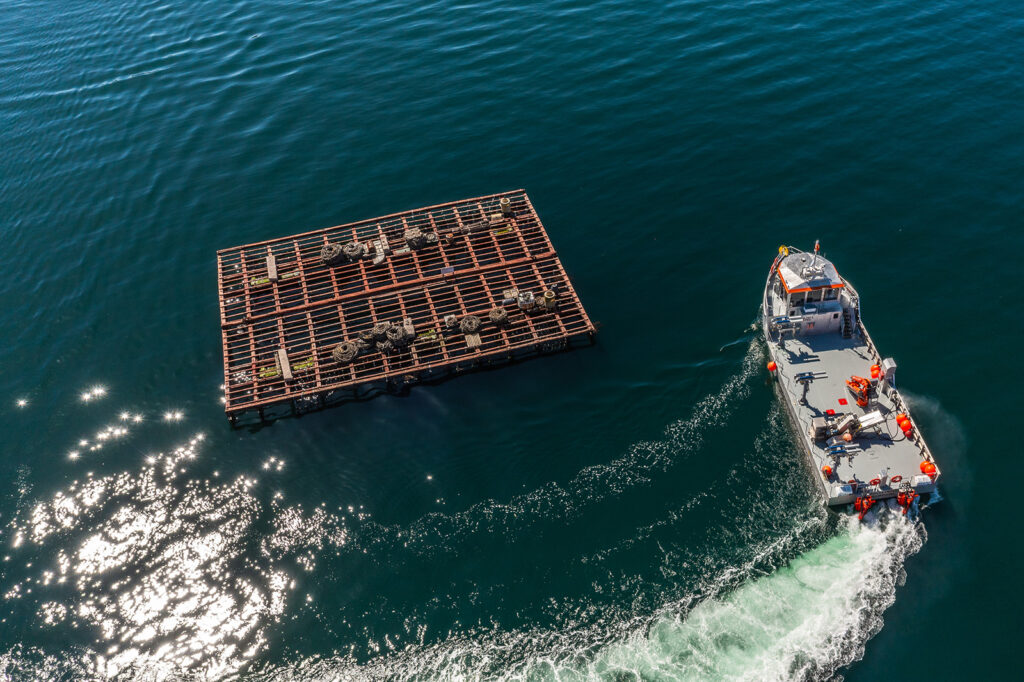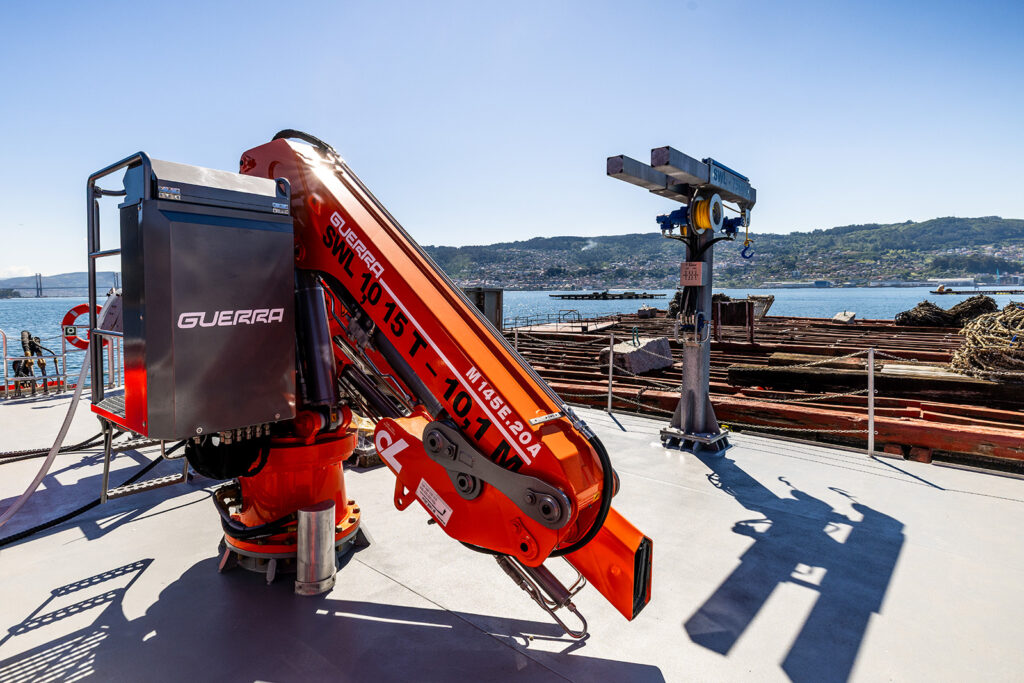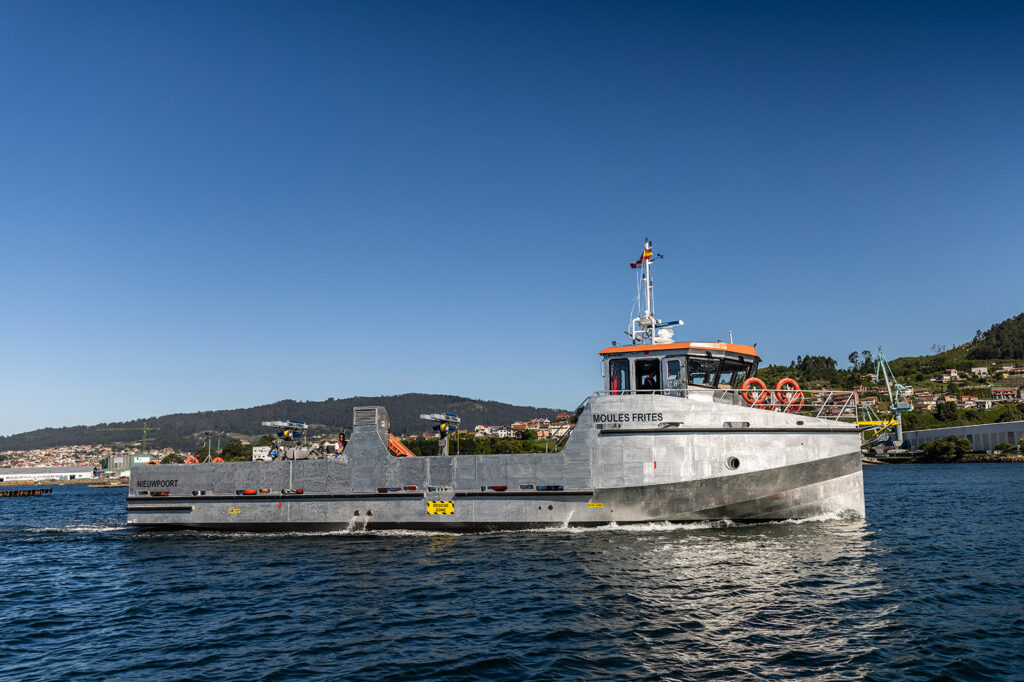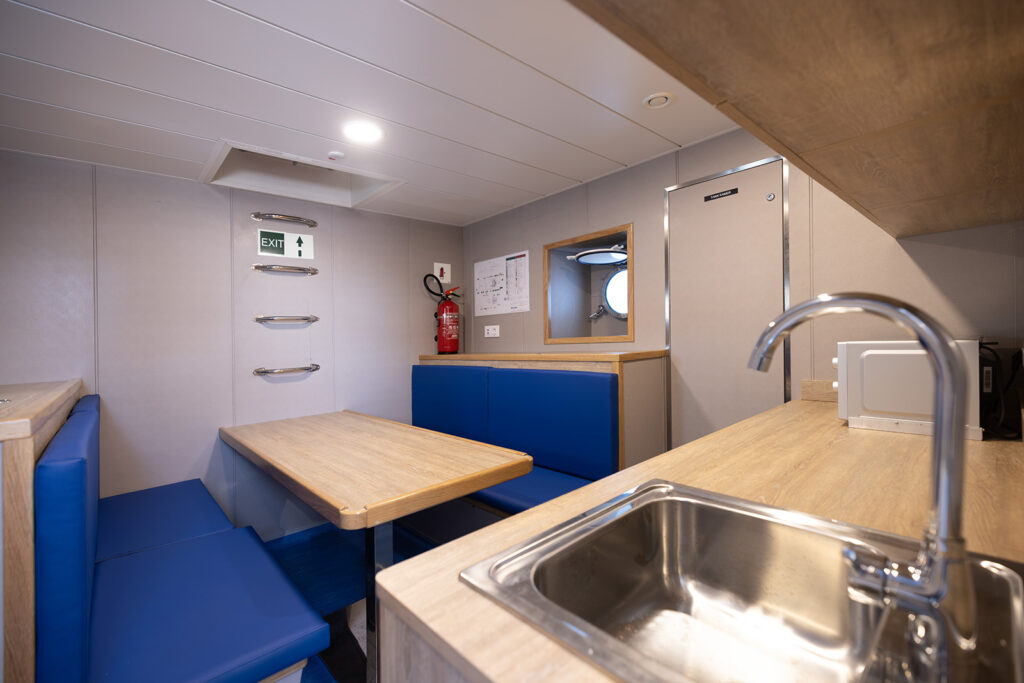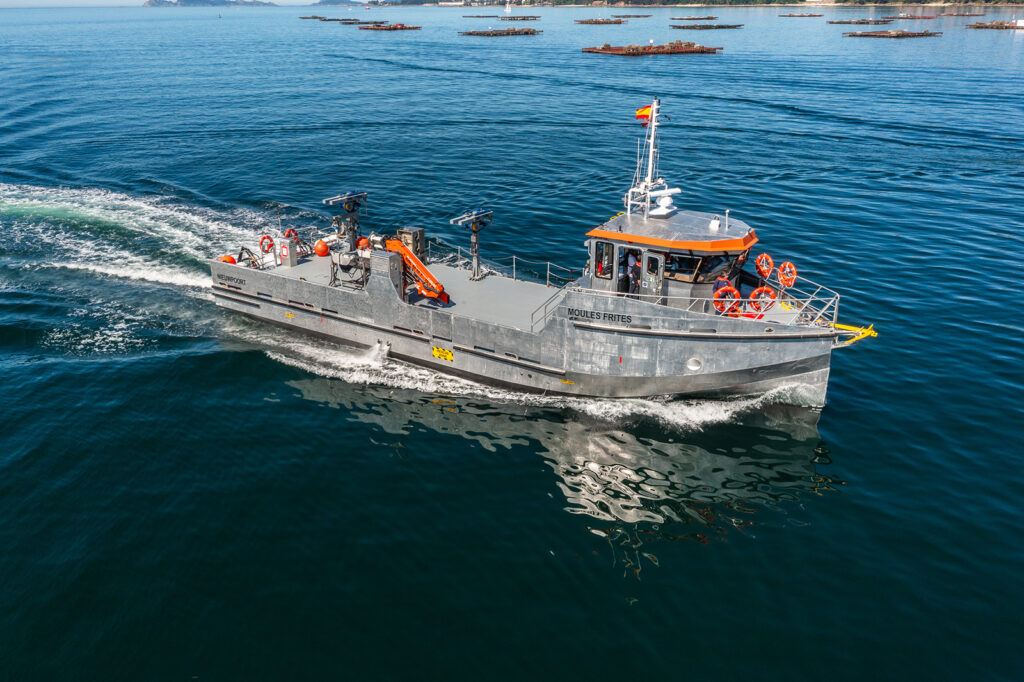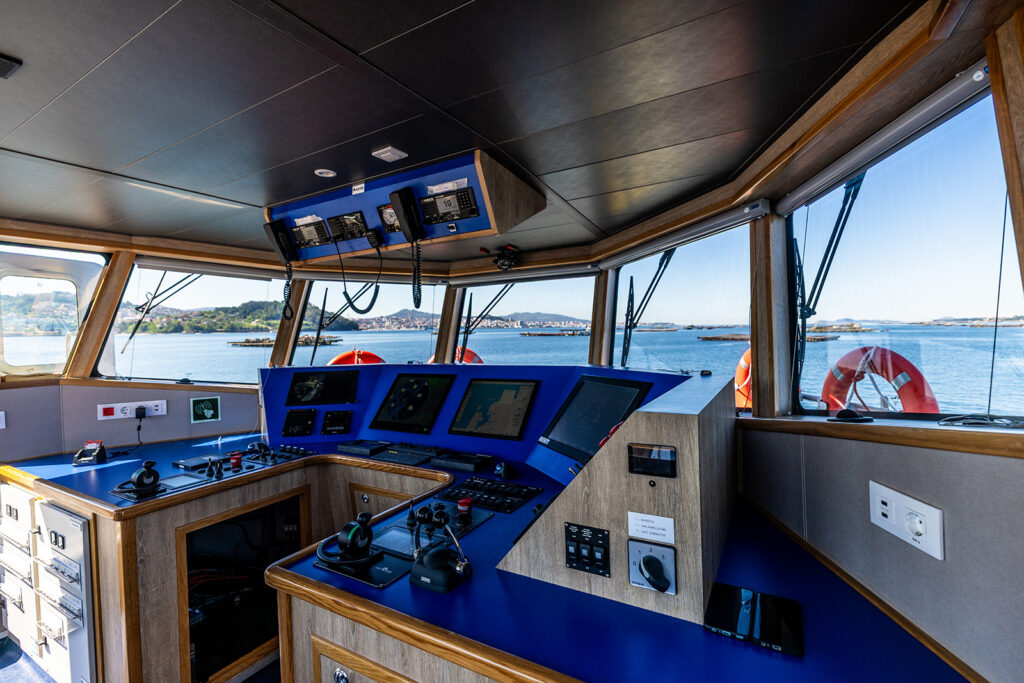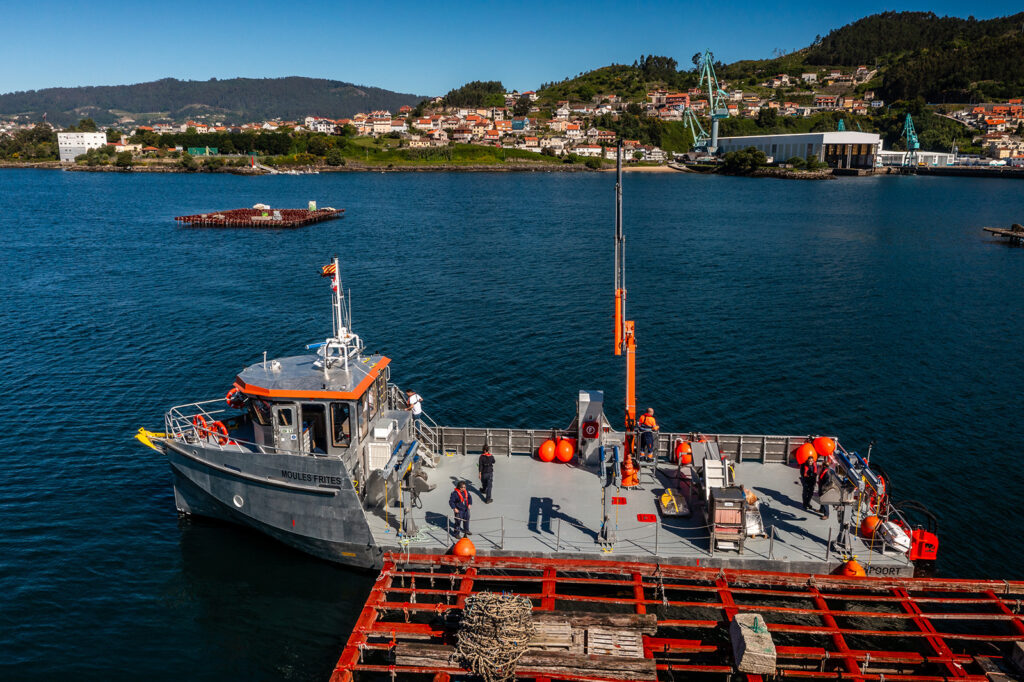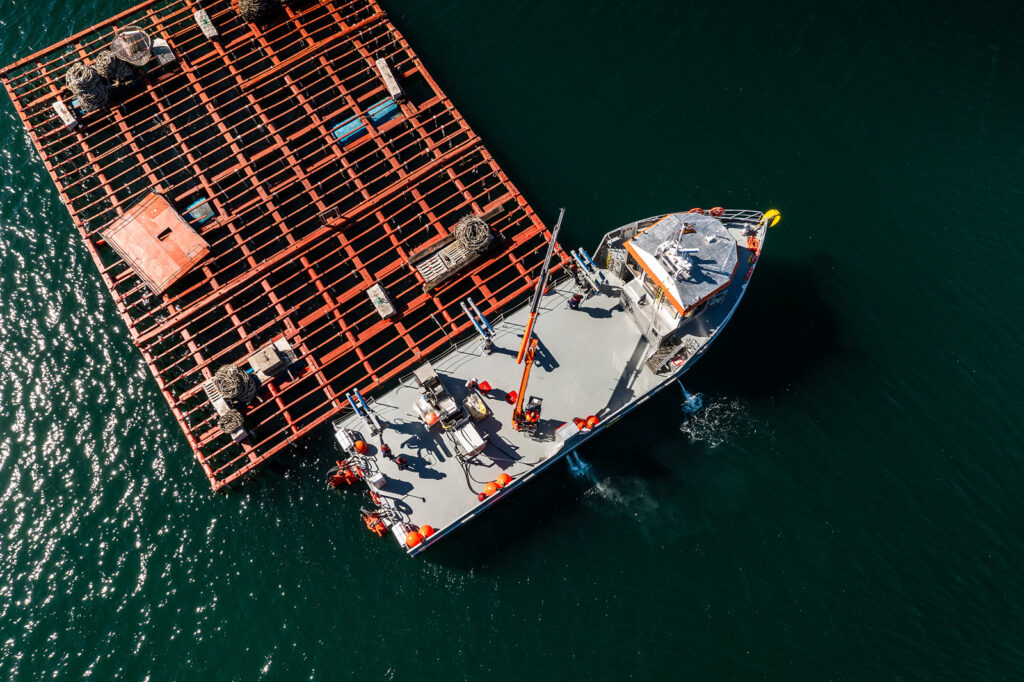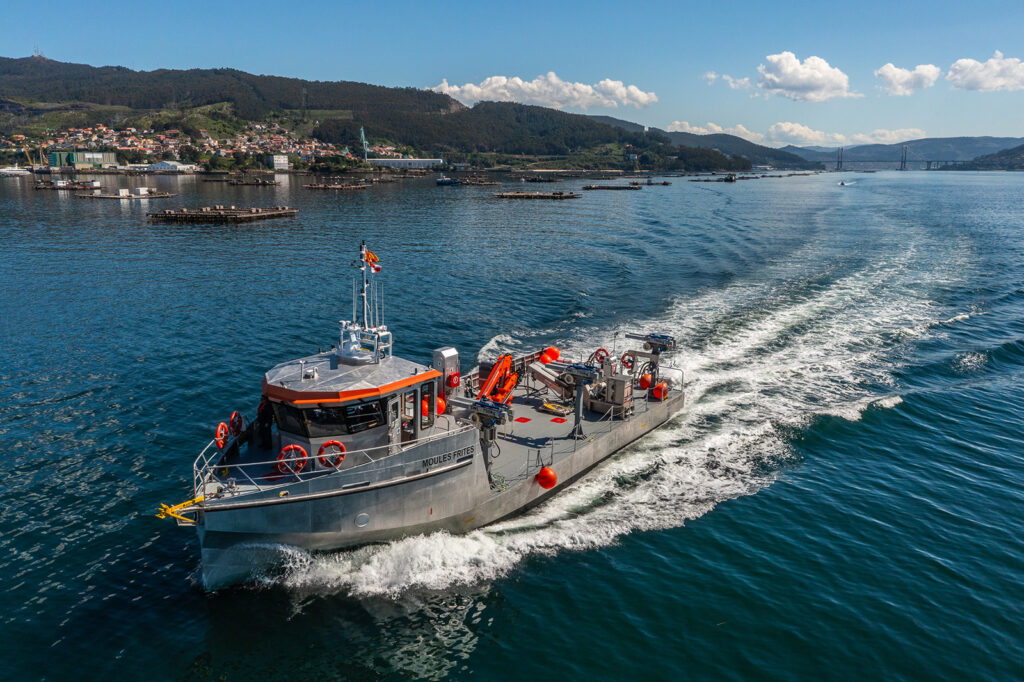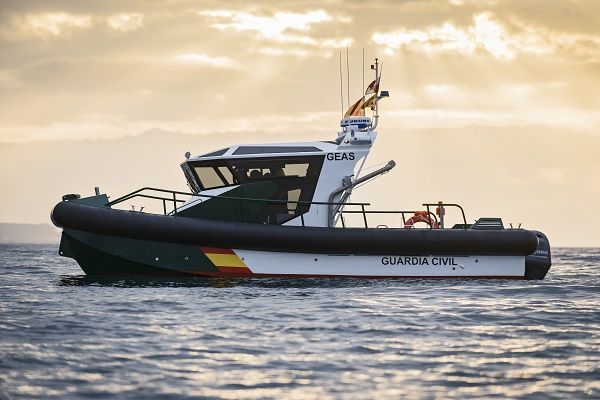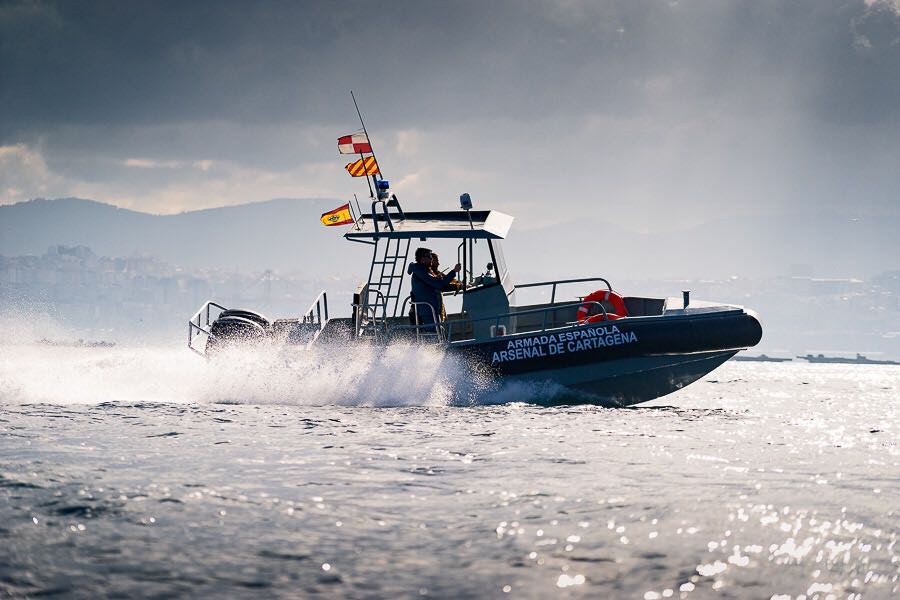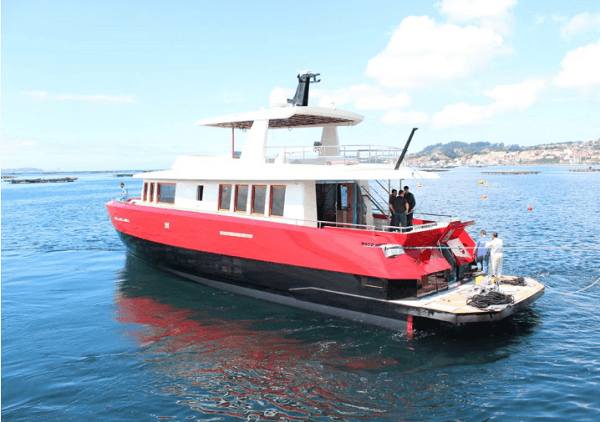MOULES FRITES, AISTER’s Mussel Harvester for Long-Line Farming
A New Standard in Sustainable Aquaculture
The new mussel harvesting vessel MOULES FRITES, built by AISTER for the Belgian company Fleetco NV (Colruyt Group), marks a milestone in European shipbuilding for aquaculture. Specifically designed for the cultivation and harvesting of mussels using the long-line method, this vessel combines efficiency, robustness, manoeuvrability, and cutting-edge technology—all within a marine-grade aluminium structure that ensures durability and low maintenance.
With this delivery, AISTER not only strengthens its position as a benchmark shipyard in the aluminium naval sector but also reinforces its international presence thanks to the trust of one of the continent’s leading food companies.
Technical specifications
Advanced Technical Features for Offshore Aquaculture
The MOULES FRITES has been designed to deliver robust, efficient, and sustainable performance in offshore conditions. Built with 5000-series marine aluminium, it is a sturdy, lightweight vessel that requires minimal maintenance. With a length of 24 metres, beam of 6.95 metres, and a depth of 1.80 metres—along with an optimised draft—it is capable of operating safely even in shallow waters.
The vessel is equipped with a diesel-hydraulic propulsion system powered by two Volvo D8MH engines, each generating 425 hp, ensuring both power and efficiency for intensive operations. Additionally, the Hydro Armor retractable thruster system enables outstanding manoeuvrability, capable of rotating 90° per side—ideal for operating close to long-lines without compromising safety.
In a clear commitment to sustainability, the vessel has been future-proofed for hybrid or electric propulsion conversion. The interior layout includes a dedicated space for lithium batteries, paving the way for zero-emissions operation in the near future—an important advancement in the sector.
With twin 2,500-litre fuel tanks, the vessel can reach a maximum speed of 14 knots and offers excellent range for long working days. It can carry up to 15 tonnes of payload on a modular deck designed to support heavy machinery. Inside, crew comfort is prioritised with well-equipped living quarters.
With these features, MOULES FRITES reaffirms AISTER’s commitment to providing naval solutions tailored to the demands of modern aquaculture. It represents the perfect balance between technology, operability, energy efficiency, and forward-thinking design.
Specialised Technology and Equipment for Aquaculture
The spacious and reinforced main deck is designed for intensive offshore operations. Specialist equipment includes:
- 3 hydraulic davits (located at the bow, midship, and stern), with telescopic arms and lifting capacity up to 750 kg per winch
- Rope hauler with dual brush system for mussel extraction and conveyor feed
- Mussel declumper and washer, optimised for continuous processing
- Conveyor belt for cleaned product
- Guerra M145E deck crane with full rotation and 1-tonne lifting capacity at 10 metres
All equipment is modular and configurable to the owner’s requirements, making this vessel a versatile tool for modern shellfish farming.
Wheelhouse: Control, Comfort and Safety
The MOULES FRITES wheelhouse has been designed to maximise operational efficiency with minimal effort. Features include:
- Joystick steering for ease of manoeuvring in confined spaces
- Full automation and monitoring system, allowing control of machinery and systems from the bridge
- Comprehensive navigation equipment: VHF radio, radar, plotter, depth sounder, and CCTV tailored to the navigation area
- 360° visibility, enhancing safety and situational awareness during all operations
Additional onboard facilities include a fully equipped galley and mess room for six, changing room with bathroom, and a mechanical workshop—ensuring comfort and practicality for the vessel’s crew of eight.
AISTER Expands Infrastructure for Large-Scale Vessels
The construction of this vessel marked a major technological and industrial leap forward for AISTER. For the first time, the shipyard carried out a structural modification to its northeast façade, enabling the launch of larger vessels and components in a single piece—without requiring final assembly.
This innovation not only streamlines delivery times and finish quality but also positions AISTER among the few European shipyards capable of fully integrated construction of large-scale aluminium workboats.
